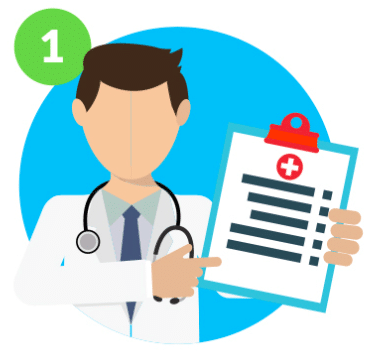

What Should You Do if You Have a Low Egg Reserve?


All of a woman’s eggs are there when she is born. About one-third of the eggs still exist as the girl ages and enters puberty. Every month and two weeks before the start of the menstrual cycle, unfertilized eggs fall in the pelvis or fallopian tubes. Seven days after ovulation, a fertilized egg implants in the uterus, where it develops into an embryo, a fetus, and finally a baby.
Low egg reserve, also known as decreased ovarian reserve, is characterized by a decline in the quantity and viability of the eggs that a woman has stored in her ovaries. It impacts fertility and the capacity to conceive and is frequently correlated with age. A decreased ovarian reserve is identified in 10% to 30% of women who cannot conceive and seek a fertility specialist’s assistance.
A low egg reserve is not usually age-related. Diminished ovarian reserve is also related to genetic flaws, harm, some operations, and harsh cancer treatment. A decrease in egg reserve frequently has no apparent cause.
Every infertility diagnosis is different, just as every patient’s treatment situation is different. Your doctor might recommend a few different treatments depending on how severely your ovarian reserve has decreased.
IVF and Preimplantation Genetic Testing
Your partner’s sperm is used in the laboratory to fertilize the egg(s) after your doctor has removed your eggs and determined that they are healthy and viable. The lab monitors the development of the embryo after fertilization. Preimplantation genetic testing is performed on the embryos around the fifth day if you wish it (PGT). PGT excludes any chromosomal or genetic problems. The doctor implants your embryo(s) into your uterus after 5-7 days have passed since the testing showed they were healthy and viable. Your doctor will implant them earlier if you decide against PGT. Even for women with a reduced ovarian reserve, IVF success rates are relatively high.
Egg Donation
Your doctor obtains donor eggs from a donor you choose who is an anonymous third party through a third-party organization. A biologically related family member, such as a sister or cousin, may also be used as a source of eggs. The use of friend-donated eggs is a choice made by certain patients. In any event, your donor is put through a variety of tests, including physical and mental examinations, family medical history, and so on. Some egg donation organizations could divulge information about someone’s physical attributes or educational background. You continue with IVF after the doctor collects the donor eggs.
You can read more about egg donation via Egg_donation link. If you start an IVF process after a doctor’s advice, feel free to contact us for your IVF medication needs like Gonal-F, Merional, HCG, and all other products.
